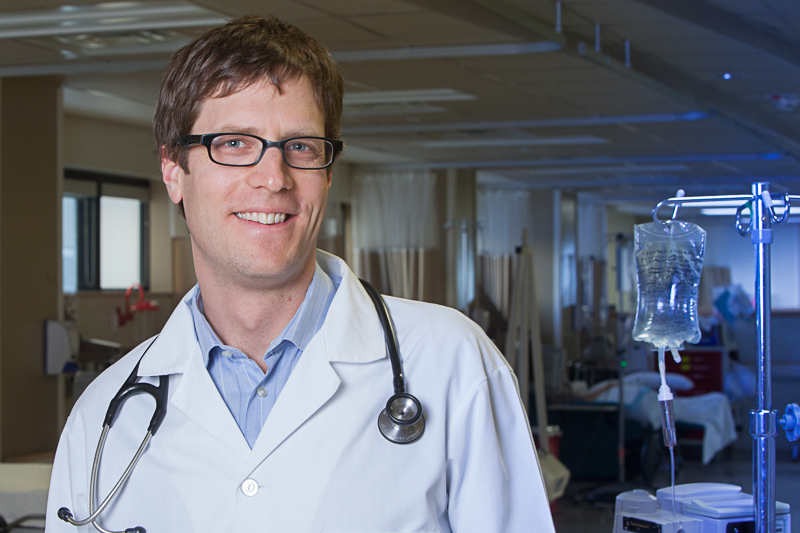Providing essential medications
December 4, 2020
Share

Queen’s University professor in the Department of Oncology Christopher Booth, together with his colleagues, are taking the World Health Organization’s (WHO) essential medicines list (EML) to frontline cancer doctors across the globe.
Every two years since 1977, the WHO has updated and released an EML and through this list, the WHO aims to promote affordable access to safe and effective medicines and provide guidance for healthcare systems across the world. The EML lists medicines spanning the entire healthcare spectrum, with one area of focus being cancer care and treatment.
As part of an ongoing study, Dr. Booth’s team collected data through an electronic survey from thousands of doctors worldwide, asking which medications were the most essential.
“The way that we framed the question is: imagine your government puts you in charge of cancer medicines and tells you that cost is not an issue, but you can only choose ten cancer medicines for your entire country,” says Dr. Booth. “What we want to know is which cancer medicines front-line clinicians would choose to derive the greatest public good, and then as a follow up, which of these medicines are actually available in their country. If the medicines listed are not available, then the survey follows up by asking why that is. Creating a list is one thing but it is crucial that we make sure that drugs are actually available on the ground.”
Dr. Booth adds he hopes this survey will help to identify medicines whose importance has been overlooked by experts, so that they can be added to future versions of the EML.
Another issue that Dr. Booth is concerned with is how a medicine’s price can impact whether it is available to patients. As the survey progresses, participants are asked to modify their previous list of essential medicines, but now factoring in cost. While some medicines offer benefits in terms of patient outcomes, they can be highly expensive. For the EML to be useful to low and middle-income countries, it is important to identify medicines which offer substantial benefits to patients and are affordable.
“While many of the cancer medicines listed on the EML are highly effective low-cost older drugs, there are some oncology drugs on the list that are very expensive. The hope is that by listing these important medicines, countries will be able to better negotiate prices that make them affordable.,” says Dr. Booth.
“Having said that, there is a risk to this approach. If the cancer list includes too many of these ‘very high cost’ medicines, there is a risk that the Ministry of Health in a country with limited resources may decide the entire cancer list is not practical and decide not to fund any of the EML drugs – even those that are relatively affordable.”
The WHO work fits into Dr. Booth’s broader research program which seeks to improve access and quality of cancer care for patients in Canada and globally.
Ultimately, Dr. Booth says he hopes that his research contributes to changes in health policy and clinical practice that lead to improved outcomes for patients regardless of where they live.